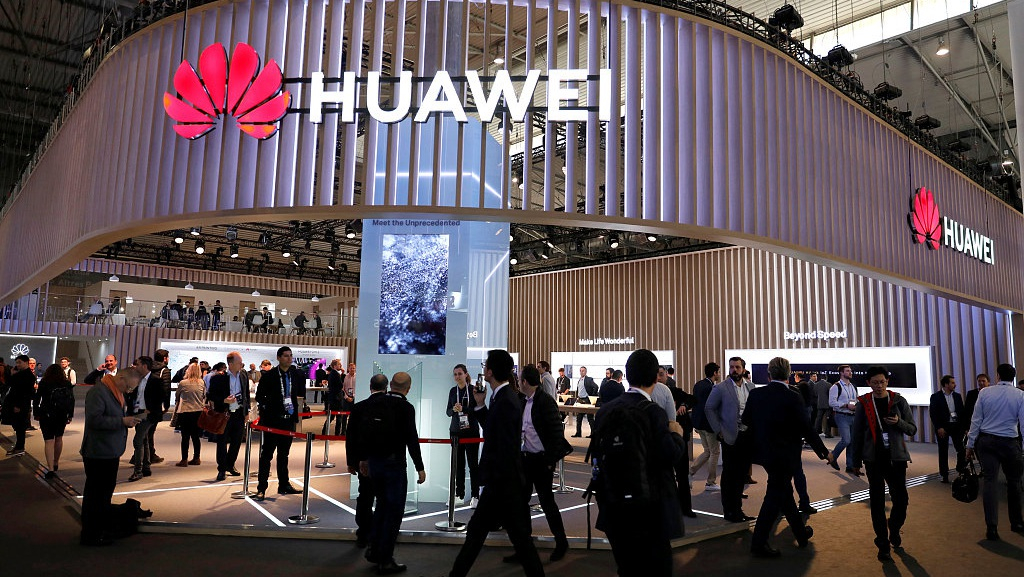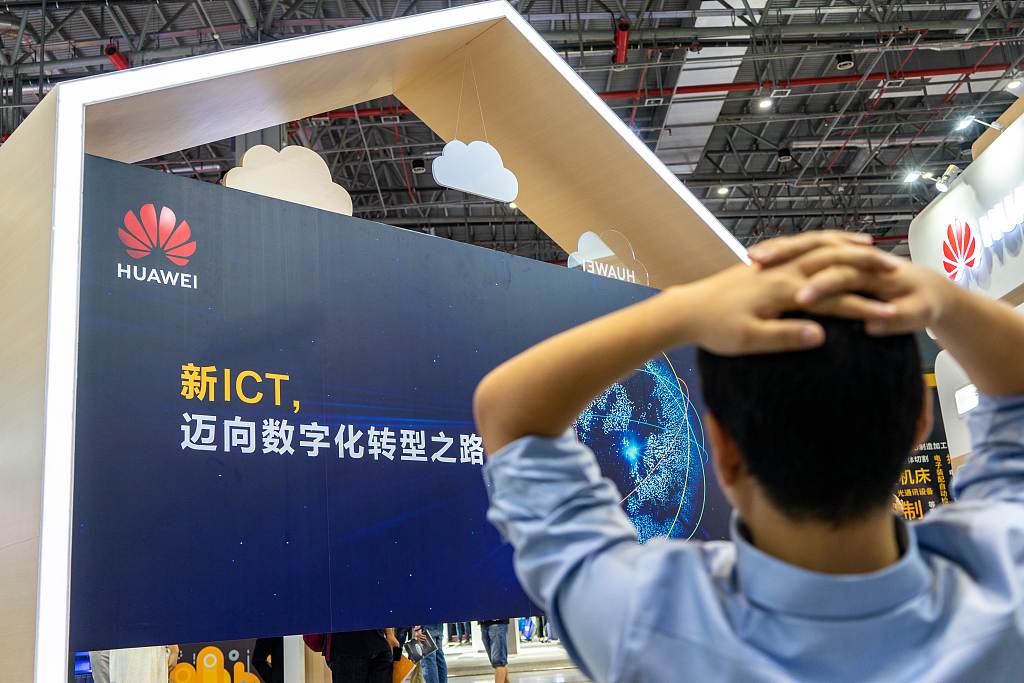
Opinion
08:34, 25-May-2019
ICT global competition is Huawei's turn around move
Updated
11:43, 25-May-2019
Hua Fang

Editor's note: Hua Fang is a senior regional manager of planning and productivity in a leading chemical manufacturing company, an ASQ six sigma master black belt, and an organizational transformation practitioner with over 10 years of experience in strategic and tactics deployment in different countries and markets. The article reflects the author's opinion, and not necessarily the views of CGTN.
Last year, Huawei held its first 2018 Global ICT Skills Competition, and this year it's going to be held on May 24-26, according to the tech giant's official website.
Though ICT (Information Communications Technology) has not been officially defined, it has been valued by industries as the catalyst of the fourth industrial revolution. However, the profound impact of the ICT has been properly assessed in terms of corporate strategy.

2018 China International Industry Fair, September 20, 2018. /VCG Photo
2018 China International Industry Fair, September 20, 2018. /VCG Photo
Since the second industrial revolution, IT (information technology) and CT (communication technology) have experienced blowout applications in various industries. During the period, various industry giants established proprietary communication means in their respective fields and issued corresponding communication protocols.
The establishment of such technologies and protocols not only enhances the efficiency of interaction between devices and modules but also allows these industrial giants to realize the potential of the technological revolution – the monopoly power to price and cash the control of communication means (hardware) and communication protocols (software).
Now, the convergence of IT and CT will bring real-world harmony – the communication technology with large bandwidth and low latency based on 5G technology will greatly shorten the surface distance. An optimized decision can be made just like neuron reaction. The world will function as a human – brain can react to any inputs if optimization or intervention is necessary. The ICT under 5G will become the nerve and muscle that could control AI, drones, computers, and mobile phones around the world.
The technology readiness requires not only cash and techniques but also stand-by suppliers and users. The ICT global competition is Huawei's turn around move.
Huawei has been collaborating with academies around the world to "deliver its ICT technologies training, encourage students to get Huawei certification, and develop talents with practical skills for the ICT industry and the community."

Huawei's new campus in Dongguan, south China's Guangdong Province, July 6, 2018. /VCG Photo
Huawei's new campus in Dongguan, south China's Guangdong Province, July 6, 2018. /VCG Photo
In this way Huawei will build its global talent pool – batches of fresh graduates will be familiar with Huawei ICT's rule and standard. These batches of talents will fill the industries and become Huawei's pioneer devoted to Huawei's ICT research and development, local protocol interpretation, and even become the entrepreneurs who use Huawei's ICT language to contribute to Huawei's market expansion and demand fulfillment. Imagine, if the majority of the fresh graduate advocate Microsoft Excel, will there be more companies installing Microsoft Office as a result?
In the same manner, Huawei will build its market impression and brand acknowledgment – when a relatively large population of fresh graduates process Huawei's ICT knowledge, how will the market react? Obviously, the market will be inclined to adopt Huawei's ICT server and protocol because of technician readiness. The companies will adopt Huawei's ICT since it requires minimum training cost and those projects using Huawei protocol might have a higher success rate since most members use a common language. Imagine when most of the fresh graduates know iSO programming, will companies release its new app in iSO first? Will iSO users become the first movers in adopting the app? Will those first movers advocate iSO app and influence the supply chain?
Huawei will win the war of innovation, which comes mainly from the collision of ideas. College students are more likely to think outside of the box before their minds are restrained by industrial jargon and "common sense." It sounds like 3M, but it's boarder than 3M in terms of global scale and diversity.
Huawei has its unique competitive advantage, while the Chinese market has its rare market strength for ICT (demographic dividend, high willingness to pay, high coverage rate, strong network effect, and flexibility in technology adoption). This unique competitive advantage is hindered by a certain level of external intervention, which makes Huawei's ICT competition a "reaction" – which starts in the "countryside" (market) and then go on to encircle the "city" (policy).
Admittedly, the ICT competition is a win-win solution for both Huawei and all its targeted markets. Those markets with limited ability to develop or deploy the technology innovation may benefit from such collaboration significantly. The trained local talent pool will contribute to the domestic productivity, and boost the residents' living conditions. Huge costs will be incurred if the local government decides to switch from Huawei ICT to another ICT protocol.
After all, wherever there's demand, there's supply. Huawei is ready to become the first ICT/5G global supplier. This is one of the reasons for a series of global interventions, which might be devastating for Huawei's next move. When international intervention goes against the international market demand, the future is not that predictable.
(If you want to contribute and have specific expertise, please contact us at opinions@cgtn.com.)

SITEMAP
Copyright © 2018 CGTN. Beijing ICP prepared NO.16065310-3
Copyright © 2018 CGTN. Beijing ICP prepared NO.16065310-3